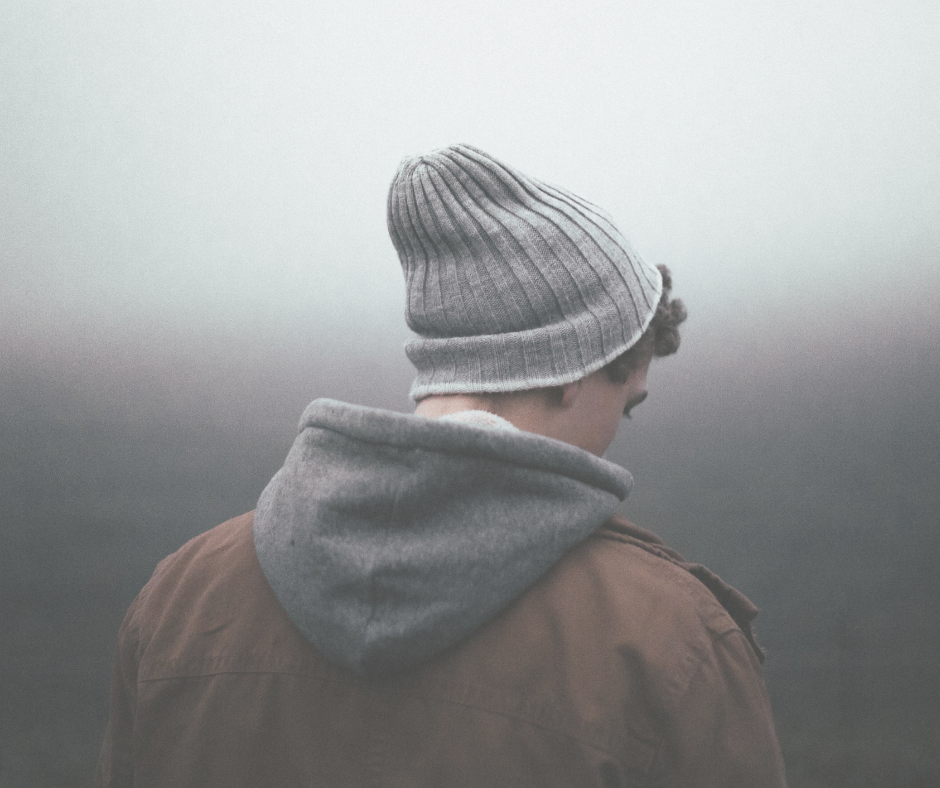
No. Not this. I’m not ready. I miss the innocence. My heart hurts. What have I done wrong?
On Halloween night, I agreed to let my son have a few of his closest friends over while I took my daughter trick-or-treating. Before I left, I looked at them in the eyes and said, “No alcohol, no one is allowed here that I don’t know, and don’t leave this house unless you receive permission from me.”
My son communicated with me throughout the three hours I was gone. Over the course of the evening, he asked if one of his friend’s friends, a girl, could come over (no), and if they could go on a walk (yes, where).
When I got home, I saw they decided to carve a pumpkin, and ate a lot of food. In other words, everything seemed fun and normal. We sat together and talked and laughed. The boys spent the night, and everyone was warm, safe, happy and together. The next morning, I made pancakes as the boys showered and got ready for school, and off they went.
Two days later, as I’m puttering around the kitchen, I notice the seal is broken on my never-opened bottle of vodka. Hmm. I open it and take a little sip. It takes a lot like water. Tears well in my eyes. Now what?
By 18, 69.4 percent of teens have tried alcohol and 41.5 percent drank within the last month.
My son is only 14.
I grew up in a drinking culture – alcohol was everywhere and it symbolized fun. I drank in high school, college and now. To me, drinking is normal, it’s fun, it’s accepted.
However, I don’t think it’s normal, healthy or accepted to drink at 14.
I’m caught in the drinking culture, though, because when a friend of mine told me her high school senior has never consumed alcohol, I was astonished. Drinking was a big part of my high school experience.
Now here I am, worried and scared for my son.
In addition to drinking being overall dangerous for his young mind and body, we have a family history of alcoholism.
This is something I’ve talked to my son about, including what that means for him. This experience has made me look at what age I think drinking is acceptable, and it is 21. That is the law. Now it was time to talk to my son about my discovery, listen to his side of the story, understand how much and how often he’s been drinking, hear what he thinks about drinking alcohol, share my concerns, and communicate his consequences.
He denied drinking with his friends on Halloween. He told me he tried it alone a few weeks before because he was curious. He was so convincing that I believed him…until his friends’ moms started talking to their sons and I learned the truth. He was more concerned with protecting his friends, not being the person who got everyone in trouble and having that reputation in high school and not wanting to make his friends mad at him – than he was to tell me the truth. We talked about not having secrets, and how they weigh on our hearts.
My trust was broken. Honesty and trust are so very important. Without it comes a lack of privileges and freedom. We talked about how it takes a long time to regain trust.
We asked our son to make a personal commitment not to drink alcohol. We told him we weren’t looking for him to make us happy and say what we want to hear. We really wanted him to come to that decision on his own. He agreed and has made a promise not to drink.
We discussed consequences of drinking. While alcohol has a toxic effect on the brain cells of adolescents, teens think they are invincible, so that won’t resonate with my son. For him, it will be loss of freedom. For two weeks, I will be picking him up immediately after school (he normally walks with his friends and gets something to eat), no sleep overs, he’s not allowed to be home alone (he’ll be going with me everywhere) and his door must be open.
Finally, we set expectations: We have a zero tolerance for drinking, together we will discard all remaining alcohol, he will focus on regaining our trust through communication and understand our requirement to require proof that we can trust him, and he will be grounded for two weeks if he drinks again and his time will be spent with us. We have a rule that he leave a party that has alcohol and never ride in a car with a driver who’s been drinking. He can call us anytime, no questions asked. We have an escape word.
I’m also examining my relationship with drinking.
This experience forced us to have hard conversations and make difficult decisions. My son is mad at me, and that’s okay. I’m praying that these values and expectations will positively affect and protect him. I pray that as he seeks more and more independence, his choices are safe for his body and brain (and my heart).
My son, you now know I’m going to make it very hard for you to get away with drinking because it – and YOU – are that important to me.










You are a brave soul. Love your article!